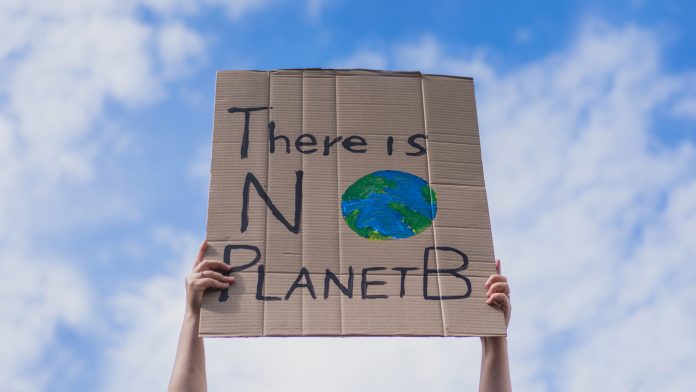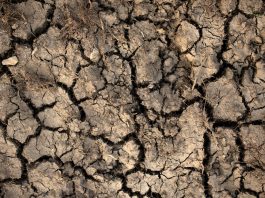A comprehensive scientific review highlights the necessity of global action to alleviate the destructive impacts of climate change.
The study has been conducted by an international group of researchers and is part of a collection of reviews on Critical Issues in Climate Change Science’ applicable to the negotiations due to take place at the COP26 climate conference.
In this review, the scientists emphasise the already damaging and forecast future impacts of Arctic warming, weakened carbon sinks and increases in marine heatwaves, stemming from climate change but also amplifying further change.
The reviews were carried out using ScienceBrief, an online platform developed by the University of East Anglia (UEA) and the Tyndall Centre for Climate Change Research to share scientific insights and make sense of peer-reviewed publications in a rapid and transparent way.
They include findings from over 430 scientific articles published over the last eight years since the publication of the previous IPCC Assessment Report.
Adam Smith, of the Tyndall Centre for Climate Change Research and School of Environmental Sciences at UEA, who coordinated the reviews, commented: “All three reviews show that the impact of climate change on these important areas is growing with the level of climate change, and that substantial impacts can be avoided by rapidly and substantially decreasing global emissions.
“The Arctic region, for example, is experiencing rapid warming and other changes including increased extreme weather such as heatwaves and wildfires, leading to changes in Arctic landscapes and ecosystems, such as permafrost thaw and shrinking sea ice. These changes have profound impacts on the way the Earth operates.”
Arctic warming
The ScienceBrief Review on Arctic warming explores the evidence connecting warming to the intensification of climate change impacts in Arctic, boreal and mid-latitude regions. The Arctic region has warmed at least two times as much as the global average, resulting in several serious environmental impacts.
The amount and breadth of sea ice have reduced, and rates of permafrost thaw have soared in recent decades. The effects of rising mean annual temperatures have been aggravated by an increase in heatwaves this century.
As well as this, more regular wildfires are emitting greenhouse gases, which is possibly augmenting the effects of climate change. Meanwhile, the loss of sea ice is lessening the quantity of solar energy reflected by the Earth’s surface. Future permafrost thaw of carbon-rich peat soils may emit greenhouse gases even faster.
Climate models project that Arctic Sea ice-free summers could occur by 2050 under a ‘high’ future emissions scenario.
Co-author Dr Judah Cohen, from Atmospheric and Environmental Research in the US, explained: “Nowhere has climate change been more impactful and dramatic as in the Arctic. A region long associated exclusively with ice is increasingly becoming a region of fire and ice, with large wildfires, especially in Siberia, making headlines.
“The Arctic has also been considered a remote region with little influence on the weather of the industrialised countries. However, observational analysis of the large changes in the Arctic, especially sea ice loss and weather extremes, suggests that the two may be related.
“As the review succinctly summarises though, this is a complex hypothesis with mixed signals in both the observations and the models and much more analysis is needed before consensus can be achieved.”
Carbon sinks
The ScienceBrief Review on carbon sinks, including oceans and forests, investigates how climate change alters the rate at which various sources and sinks of carbon operate, which modifies the rate of growth or decline of atmospheric carbon dioxide (CO2) concentration, intensifying or diminishing climate change respectively, known as ‘feedback’.
The greater the emissions scenario, the lesser the proportion of emissions eliminated by the sinks, thus leaving a larger proportion in the atmosphere, intensifying climate change. Models indicate that ongoing climate change would act to reduce carbon sinks, resulting in a further increase in atmospheric CO2 for every additional degree Celsius of global warming.
The size of the carbon–climate feedback is restricted by past studies and models. Reduced land and ocean carbon storage in response to climate change are projected to lead to further warming of up to 30%.
“We now have much evidence pointing in the direction of a positive feedback between climate change and the global carbon cycle,” commented lead author Prof Pierre Friedlingstein, of the University of Exeter.
“Warming leads to a reduction of both the land and ocean carbon sinks, leaving a larger fraction of the anthropogenic emissions in the atmosphere, hence amplifying the warming. Only rapid and strong emissions reduction will help mitigate those positive feedbacks.”
Marine heatwaves
The ScienceBrief Review on marine heatwaves reveals that climate change has led to rises in the regularity, intensity, and extent of heatwave events in all oceans. The collapse of kelp forests on three continents and coral bleaching of the Great Barrier Reef, as well as other locations, are merely some of the impacts of marine heatwaves.
Marine heatwaves can be characterised as unusually warm water events that last for five or more days. They can be triggered by a range of natural physical processes driven by oceanic and atmospheric conditions.
Professor Thomas Wernberg of the University of Western Australia, who led this review, explained that the evidence indicates a clear consensus that ocean warming as a result of human-caused climate change is increasing the likelihood of these processes compounding to create more recurrent and intense heatwaves.
“These changes cause widespread ecological and socioeconomic impacts, in all oceans and on a range of species throughout entire ecosystems,” added Professor Wernberg. “For example, changes to the distribution of marine species, loss of biodiversity, and the collapse of foundation species including coral, kelp and seagrass.
“Also, declines in the services these ecosystems support, such as fisheries revenues and livelihoods, as well as cultural and recreational assets.”
Future marine heatwaves are anticipated to become more common, intense and longer by the mid-21st century under all future emissions scenarios, including those aligned with the Paris Agreement – highlighting impacts of historical emissions that are already ‘locked-in’.





